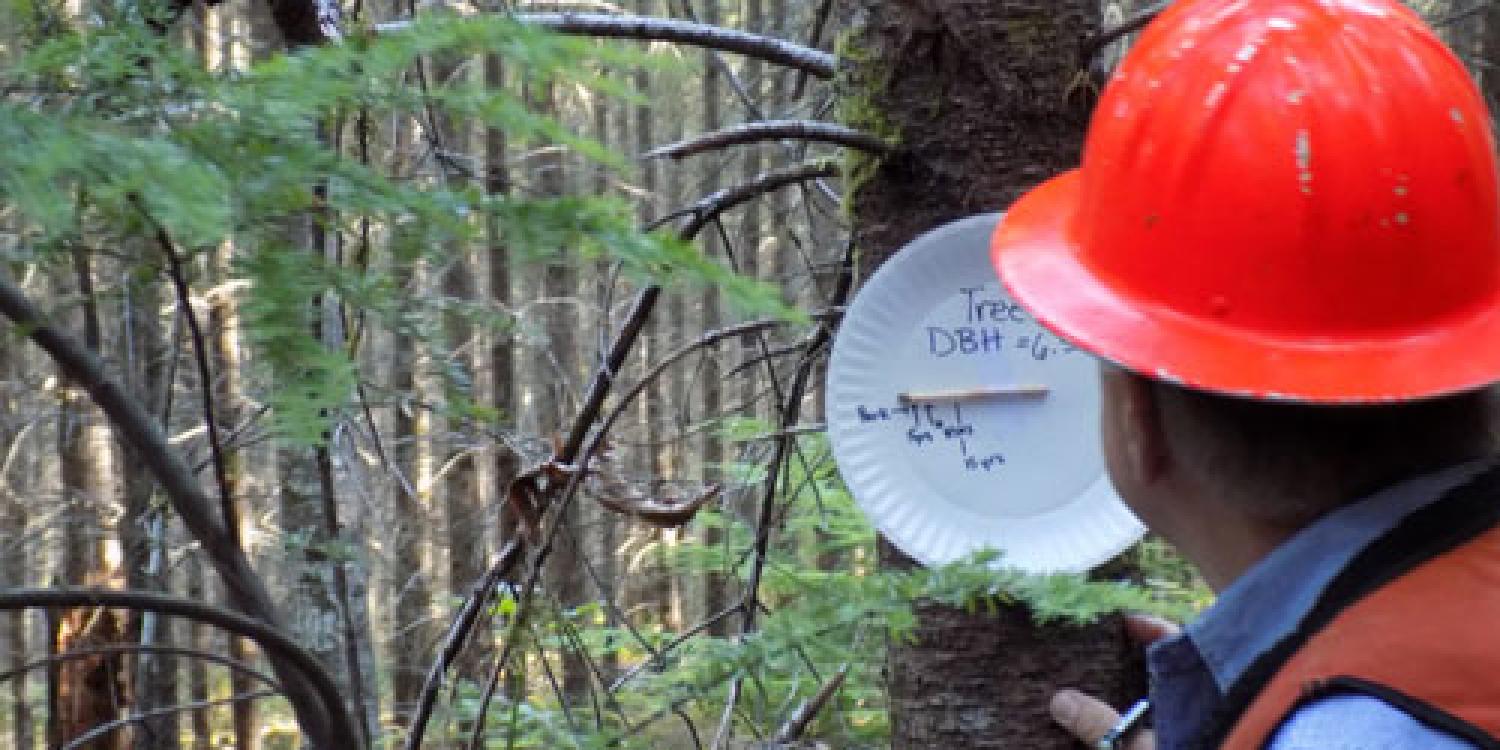
Forests cover 85% of Lane County and have long been considered a major jewel in the crown of the county’s natural resources.
Lane County’s family woodland owners play a vital role in forest management, providing substantial contributions to local economic, social, ecological and recreational services and improving forest health. Families operate 12% of the county’s private forestland.
To ensure stewardship of these family-owned forests, the Oregon State University Extension Service established a county Master Woodland Manager (MWM) volunteer program. In this training program, OSU provides 48 hours of intensive instruction in technical forestry topics and leadership, and encourages the building of a network for continuous collaboration.
“There was a need to ensure enhanced management of family forestlands,” said Lauren Grand, Extension forester in Lane County. “Landowners and managers needed the opportunity to learn from experts as well as from each other, and to ensure support for their stewardship efforts.”
After they complete the training, MWM volunteers foster forest landowner networks in their local communities, take leadership roles in forest landowner organizations, educate non-woodland owners and participate in citizen-science projects.
In 2021, MWM volunteers in Lane County reported 1,128 hours of unique activities with the public, family forestland owners, youth, watershed councils and various other organizations.
The Lane County volunteers are part of a statewide Master Woodland Managers organization managed by OSU Extension. More than 80% of MWM volunteers remain active past their required volunteer service commitment, with some now serving as long as the program has been in existence, more than 35 years.
For some, Master Woodland Managers carries with it a prestige and reputation for objectiveness that provides landowners with the self-confidence needed to work confidently with professionals, policy makers, and their peers. As one Master Woodland Manager said, "The knowledge I gained by taking the MWM training gave me the confidence to serve on local boards and committees as well as enough confidence that I could intelligently express my concerns, problems, and solutions."